How to Secure Your Smart Contracts Using OpenZeppelin Defender
 BuildBear
BuildBear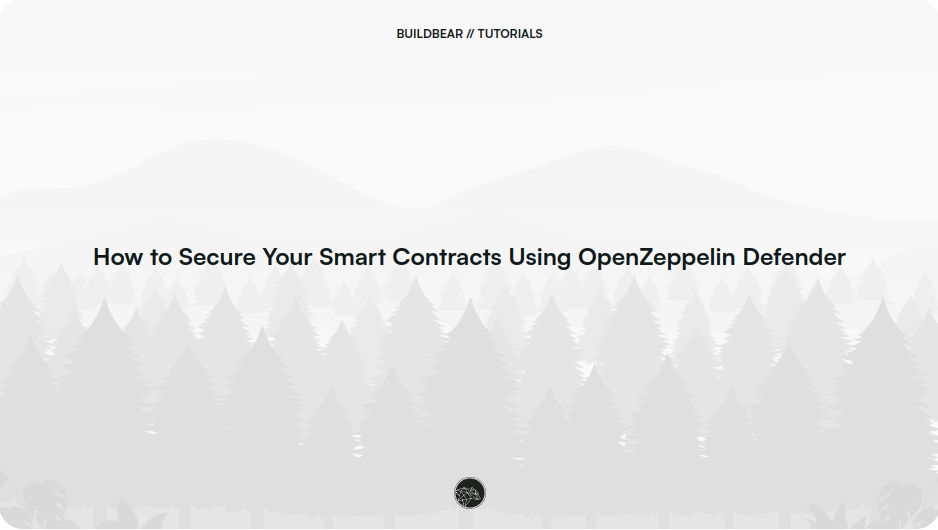
Openzeppelin Defender for Smart Contract Security
Assumption: You are a Smart Contract Developer (or working on becoming one) or a CXO of a Web3 Application.
Simply put OpenZeppelin (’OZ’) Defender is a Smart Contracts (EVM, Solidity) DevTool. OZ Defender helps you with the following:
Code Inspection: A GitHub Action that reviews your code base with every single Git push and provides an analytical report
Deployments: Enabling contract deployment with bytecode verification and upgrade of smart contracts with upgrade checks.
Monitoring and Alerts: Set up custom alerts and notifications to ensure dApps maintain compliance and detect threats or any suspicious activities by tracking certain events like ownership transfers, minting of assets, and contract pauses
Automation: Similar to Gelato’s Web3 Functions, automate tasks to streamline development and operational processes for dApps
For a Web3 App Tech Team: All of the above is simply useful and easy to understand.
To the CXO (except CTO): It is likely that only (a) the Monitoring and Alerts, (b) Automation is something that you would be interested or concerned with.
Development and Testing Phase
If your Web3 Application is in the Development and Testing phase, as a CTO you should be in constant need of (a) code inspection, (b) deployments, and (c) automation (testing of it). The following is your current workflow:
The team is distributed in smaller divisions (overlapping possible) (not all necessarily): Smart Contracts, Frontend, and Backend.
Your Smart Contracts Team is using Foundry or HardHat for developing smart contracts and testing them using Forge, HardHat Mocha (Chai)
Everyone is doing a Git Push (possibly to different branches)
As a CTO you are expected to manage the overall code and thus the branches.
Possibilities with BuildBear Forks
BuildBear complements Defender’s capabilities by providing a specialized environment tailored for DApp development and testing helping developers to identify and fix issues before launching to testnet and mainnets. Let’s explore its key features and why use Defender leveraging BuildBear Private Testnet Sandboxes.
Unlimited Token Minting: Mint unlimited Native and ERC20 tokens with BuildBear faucet.
Rapid Transaction Times: Instant transaction processing in under 3 seconds
Private Explorer: Test and debug with private explorer
Plugins: Seamlessly integrate with third-party services for enhanced development experience
Configuring BuildBear Sandbox with OpenZeppelin Defender
OpenZeppelin Defender’s Deploy feature enables developers to securely deploy and upgrade smart contracts, while BuildBear offers a private faucet for unlimited minting of native and ERC20 tokens, with rapid transaction processing. To integrate BuildBear with OpenZeppelin Defender for secure deployment and upgrades of smart contracts, follow these steps:
Sign Up for an Openzeppelin Defender Account here. After signing up, a dashboard will be displayed similar to the image below;
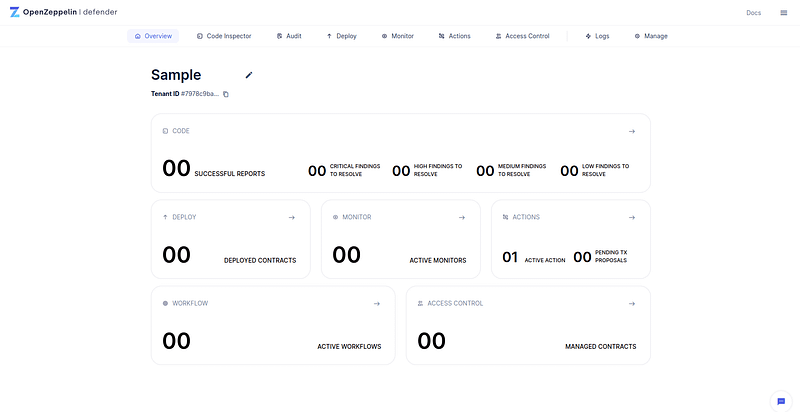
Create an Account on BuildBear and set up the BuildBear sandbox forked from Mainnet ot testnet, Here is a quick guide to get started. After creating a sandbox on any network, copy the RPC URL and Explorer URL of the created sandbox.
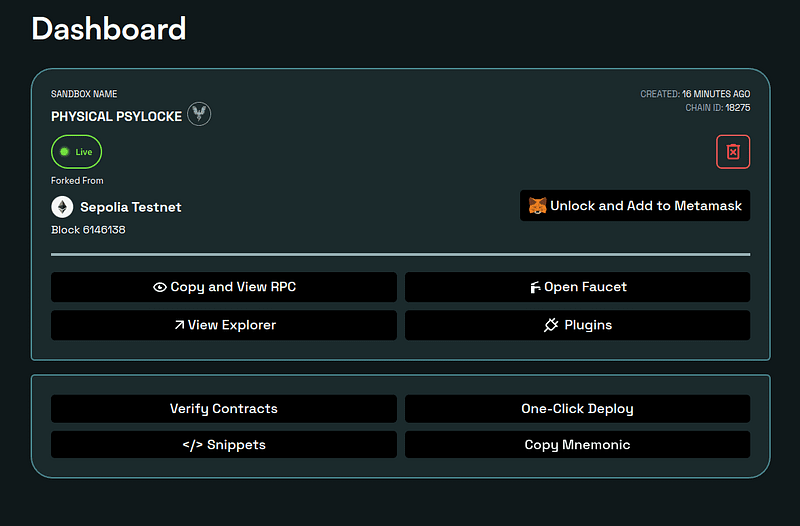
Navigate to Defender Forked Networks to add your Sandbox details. Click on “Add Forked Network” and save after entering the details of the Sandbox from the BuildBear dashboard.
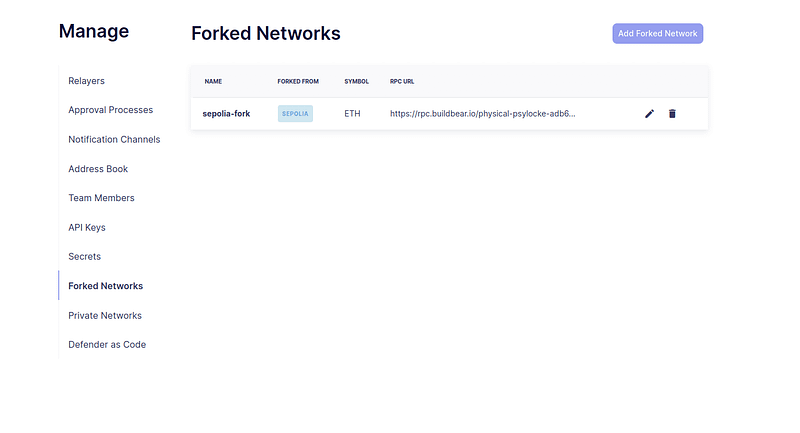
Relayers are EOA that Defender creates for us. It can be used to send on-chain transactions through Defender. Create a Relayer for the selected network by clicking the ‘Create Relayer’ button and selecting your forked network from the dropdown. Then, Transfer native tokens to the Relayer address from the BuildBear Faucet to cover the gas costs of the transaction.
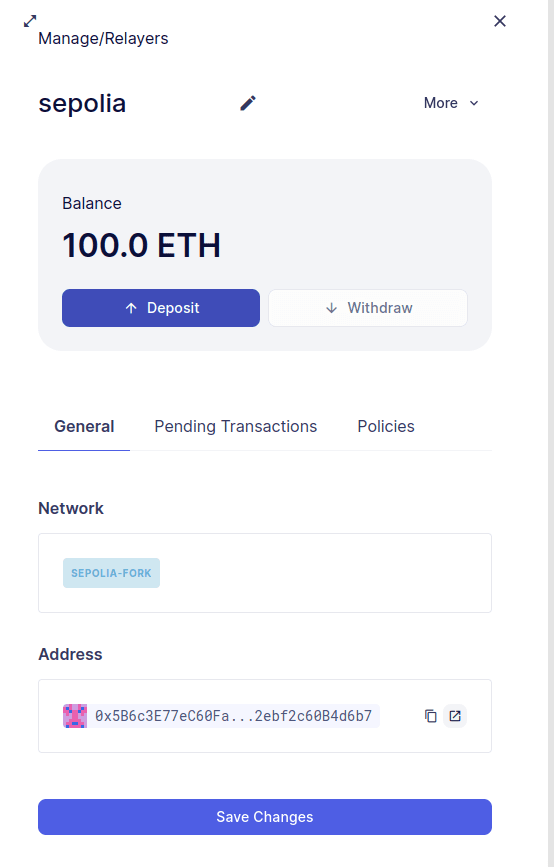
Go to Defender Deploy to create a deploy environment either a production or testnet environment based on your forked network. Select your forked network from the drop-down list. Click on continue and Create an approval process for deployment by adding your Relayers, EOA, or Safe multisSig address. Since relayers automate transaction executions and management, add the Relayer’s address for the deployment approval. Click on Continue and skip the next step (the upgrade approval process is not supported for the forked network) to complete the setup.
Store API keys and secret keys which will be required later. Now the Production environment for deployment is set. Check the balance of Relayer by clicking on Block Explorer.
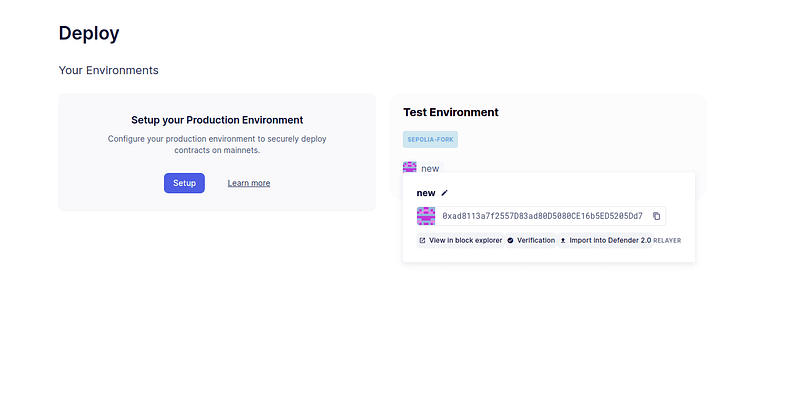
Deploying Contracts on BuildBear Sandbox with OpenZeppelin Defender
Now that the environment is set, let us start deploying our contracts. In this example, we will deploy the uniswapv2 smart contract using relayer. Follow the below steps to deploy the contract.
Create a dot env file in the root directory to add your API and secret key as in the below format
DEFENDER_KEY=""
DEFENDER_SECRET=""
Compile the contract using npx hardhat compile to create artifacts to import into our deployment script. Write the deployment scripts as shown below:
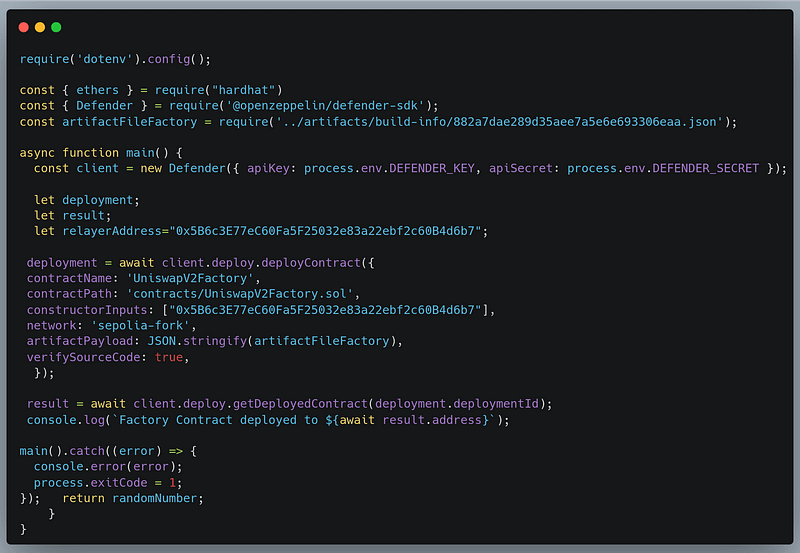
Run the script to deploy the contract. After successful deployment, you can track the deployment status on the Defender Deploy Dashboard.
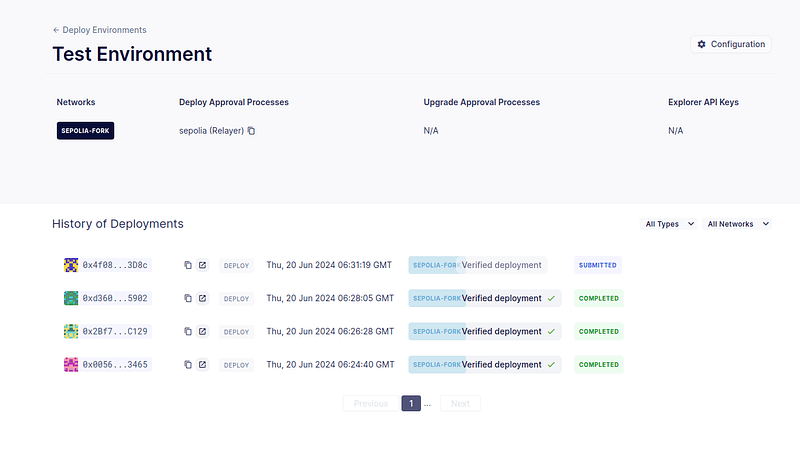
Navigate to BuildBear Explorer to see the transaction details.
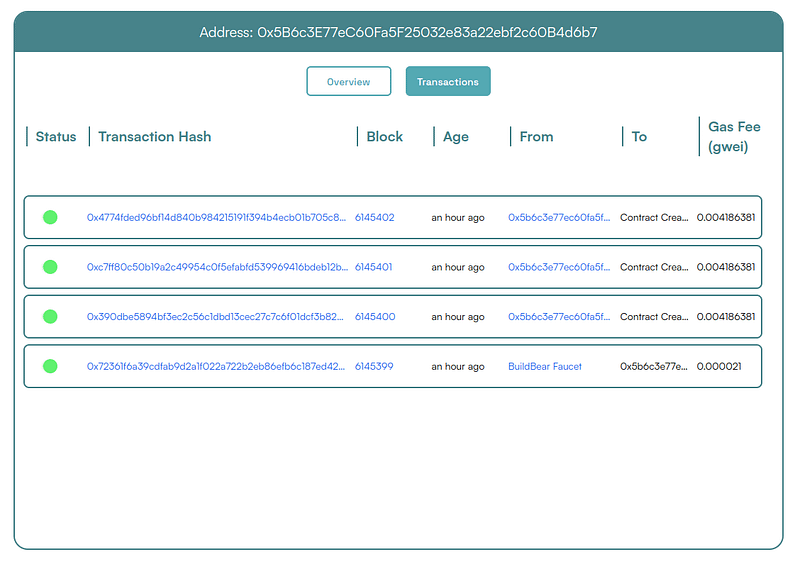
Congratulations! We have successfully deployed smart contracts on BuildBear forked Network with OpenZeppelin Defender.
Conclusion
OpenZeppelin Defender with BuildBear provides a powerful combination of smart contract development and deployment platform, for advanced security and efficiency in your decentralized applications and protocols. With Defender’s tools for code inspection, deployment, monitoring, and automation, alongside BuildBear’s private environment with robust features for development and testing, you can ensure your smart contracts are secure and optimized from development through to production.
Connect with us on Twitter | LinkedIn | Telegram | GitHub
Author: Sana
Subscribe to my newsletter
Read articles from BuildBear directly inside your inbox. Subscribe to the newsletter, and don't miss out.
Written by

BuildBear
BuildBear
BuildBear is a platform for testing dApps at scale, for teams. It provides users with their own private Testnet to test their smart contracts and dApps, which can be forked from any EVM chain. It also provides a Faucet, Explorer, and RPC for testing purposes.